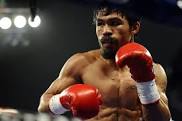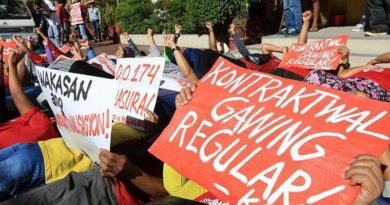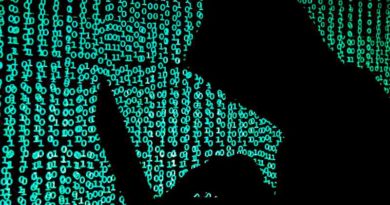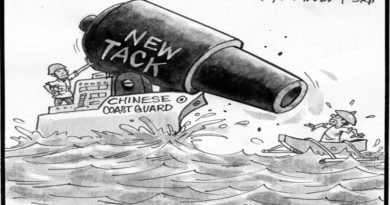Boxing great Manny Pacquiao paid tribute to the Filipino athletes
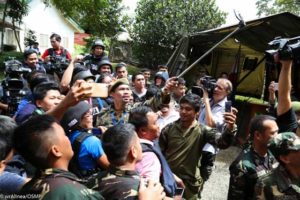
Speaking on the eve of the country’s celebration of 29th National Heroes Day, boxing’s only eight-division champion and now senator, offered good, inspiring words on his 52 fallen comrades, who, on separate occasions, perished during World War II even as he called on the present-day athletes to emulate heir feats.
“Tomorrow, the entire nation will be commemorating the great deeds of our heroes who led the country’s fight for freedom and democracy, and, died in the process” Pacquiao said in a telephone interview yesterday.
“But unknown to many in us, we in sports also have heroes, who besides representing our country in many international arenas in their quest for honors, also fought and died in battlefield para makamit ng kalayaan laban sa mga nagtangkang sumakop sa atin,” the lawmaker from Sarangani province said.
“Like our National Heroes, Gat Jose Rizal and Andres Bonifacio, to mention a few, napakahalaga ang nagawa n gating mga bayani sa sports tinatamasa nating kalayaan ngayon,” Pacquiao, the only man to win world championships in the flyweight, super-bantmweight, featherweight, super-featherweight, lightweight, junior-weltrerweight, welterweight and super-welterweight divisions in his m22-year pro-career, said.
“As an athlete myself, I’m happy and honored to commemorate their heroics and inculcate them in the minds of our present day athletes para tularan nila ang nasabing kabayanihan,” the Pacman asserted.
Of the 52 sports-military heroes, nine are Olympians, including swimming double silver-medalist Teofilo Yldefonso, and another third place finisher in track and field, Miguel White. Other Olympians in the list were Jacinto “Jumping Jack” Ciria Cruz and Amador Obordo in basketball, Lt. Nemesio de Guzman, also in track and field, Lt. Otoniel Gonzaga in shooting, Lt. Simplicio de Castro in boxing and Lt. Enrique Jurado and Abduraman Ali, both in swimming.
Yldefonso, a Philippine Scout from Piddig, Ilocos Norte, who is to be remembered as the only Filipino to bring home a pair of Olympic bronze medals both in the 200-meter breaststroke, a feat he did in 1928 in Amsterdam and 1932 in Los Angeles, died in the infamous “Death March” from Mariveles in Bataan to the Capas Concentration Camp in Tarlac.
White, from Legaspi City in Bicol, was also a bronze medalist in the 400-meter hurdles during the 1936 Olympic Games in Berlin, the same year Ciria Cruz, along with another basketball Olympian Amador Obordo, helped the Philippine team to a fifth place finish, up to now the highest by any Asian nation in the quadrennial conclave popularly known, too as “The Greatest Sports Show on Earth.”
Ciria Cruz was executed by the conquering Japanese forces while performing underground works in Bayombong, Nueva Vizcaya. Of the 52, 19 carried the country’s colors in many international competitions in track and field, 10 in swimming, nine in baseball, five in basketball, three in boxing, two in football, two in tennis and one each in wrestling and shooting.
Yldefonso and White were two of the 11 Olympic medalists who were recipients of the “Lifetime Achievement Award” each from the Sports Communicators Organization of the Philippines (SCOOP) during the 80th Anniversary of the Philippine participation in the Olympic Games.
Majority of the honorees were either members of Philippine Scouts, the USAFFE or underground guerilla units. Three had just been honored as “Most Outstanding Filipino Athletes of Half-A-Century “– Yldefonso himself, Ciria Cruz and Virgilio Lobregat in football.
De Guzman of the Philippine Army was a member of the national delegation in the IXth Olympiad in Amsterdam in 1928, while Gonzaga and De Castro saw action in the XIth Games in Berlin in 1936. Ali swam in the Xith Olympiad in Los Angeles.
Besides White and De Guzman, other Filipino runners, throwers and jumpers who were victims of war were Miguel Sugeco, Sgt. Doming Espanol, Lt. Jose Antonio, Mayor Emilio Bucoy, Wenceslao Bansale, Eliseo Razo, Civico Granado, Maximino Pasaporte, Albino Bangayan, Delfin Danguilan, Lt. Constantino Alambra, Moises Lucas, Felizardo Casia, Francisco Danao, Bartolome Barabad, Alejo Alvarez and Simon Santos.
Swimmers Rosendo Aguinaldo, Policarpio Tolentino, Donato Cabading, Miguel Bartolaso, Ulka Mangona, Jakara Angkang, Bernardino Tugbo and Mauricio Guidote, perished too, as solders-athletes like Yldofonso and Ali.
Baseball players, who represented the country in many international meets, including the Far Eastern Olympic Games, were Sgt. Aquilino Jacob, Cpl. Pabalo Chu, Sgt. Gervacio Estorba, Atilano Rivera, Cacimiro Francisco, Ramon Oncinian, Toribio Oncinian, Regino Bertulfo and Cipriano Platon.
Other non-Olympic athletes who died wearing military uniforms were Carlos Canillas, Albert Murrow and Robert Keesy in basketball; Francisco Zarcal and Martin Roxas in boxing, Jose Miranda in football and Concepcion Santos-Cepeda and Juan Ladaw Jr. in tennis.
Mrs. Cepeda, a long-time singles and doubles tennis champions, incidentally, completed a Santos brother-sister siblings died during the war while also competing in their respective sports events.
A commemorative plaque, measuring 33 x 24 inches and cast in bronze containing their names was attached and unveiled on July 17, 1951, in the wall at the Basketball Coliseum facade inside the Rizal Memorial Sports Complex, by the now-defunct Philippine Amateur Athletic Federation president Jorge Vargas.
T2o years ago, The Philippine Sports Commission transferred the commemorative plaque outside of the Rizal Memorial Sports Complex tennis courts.

